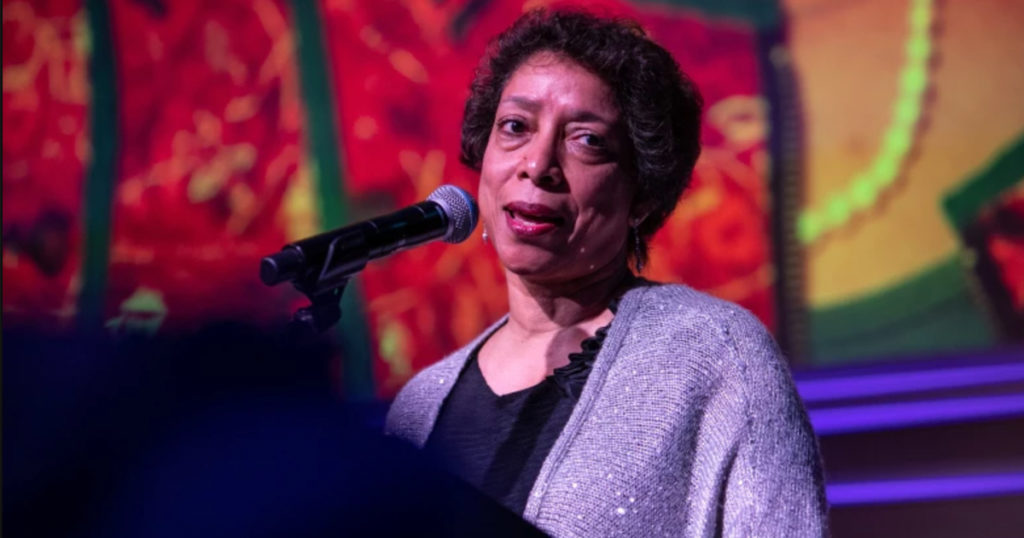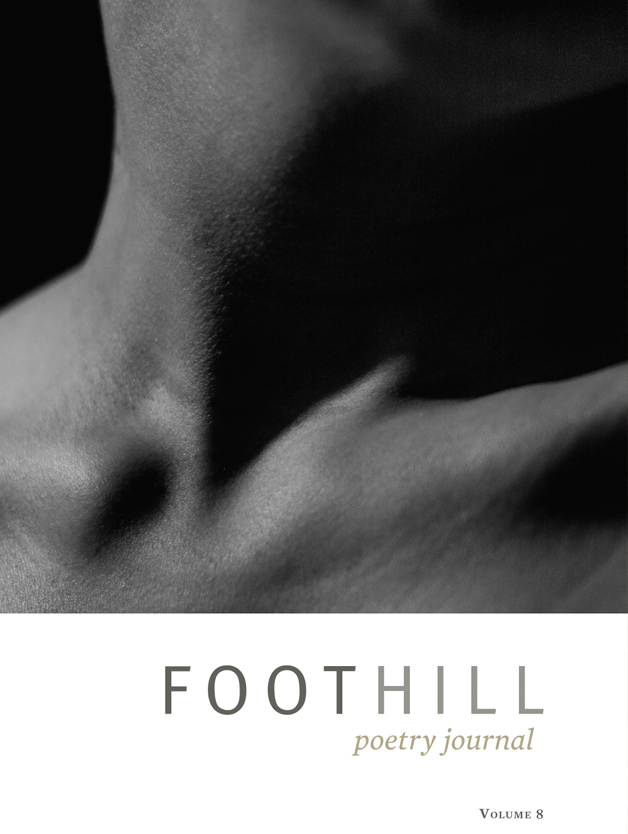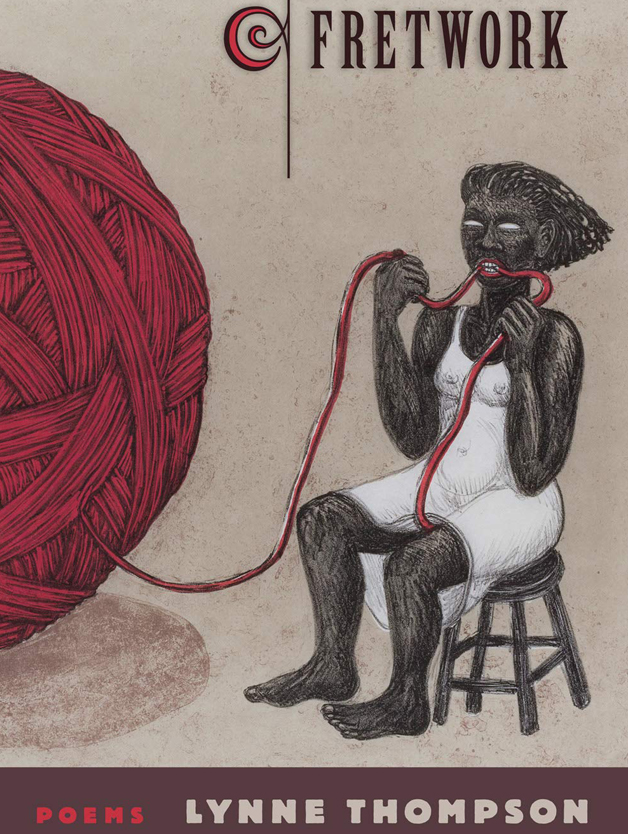Profile and Interview with Lynne Thompson – Los Angeles Poet Laureate (part 2)

Previously, I wrote about Los Angeles’s newest poet laureate, Lynne Thompson. I was lucky enough to have the chance to ask her a few questions over email about her new position. her work, what LA sounds like, and what she’s reading now. Thompson’s work can be found in a variety of publications online and in print. Her latest collection, Fretwork, is available through Marsh Hawk Press.
—
Lilly Fisher: Many of your poems create and tangle with with stories of ancestry, diaspora and place: where we come from culturally, geographically, spiritually. How do you relate personal history and ancestry with the history of the city of Los Angeles? How do you think these questions of migration, lineage, and cultural hybridity fit into your idea of Los Angeles, yourself as an Angeleno and the role of a poet laureate of Los Angeles?
Lynne Thompson: I relate to the history of the Los Angeles as a place enriched by—and often, dependent upon—immigrants who migrated from Asia, Mexico, or as in the case of my parents, the Caribbean. My childhood and coming of age led to my understanding of what we mean when we refer to the diaspora. As a young girl, my parents lived in a neighborhood that was a mix of Japanese, white, and Black families. On Sundays (as reflected in my poem “Emigré”), my father and my brothers would play cricket—not baseball—in Griffith Park because that was the popular game on St. Vincent where my father was born. Oh, and my mother was the game’s scorekeeper! These influences are necessarily as evident in my writing as any other aspect of my DNA. As an adoptee who’s met members of my birth family, which is another rich story, I feel confident that the sound of details in my poems would be quite different but for the mixture of my Caribbean heritage and the sounds of the city.
Fisher: In your 2018 interview in Foothill Poetry Journal, you and the editors discuss how important sound and music are in your work. I feel like your poems create sensations and imagery of a place through listening, as well as looking and feeling. How do you think sound, music and rhythm can contribute to a sense of a place? How do you think the sounds of Los Angeles, for example, can be felt collectively and differently by those of us that live here, and created or communicated in poetry?

Thompson: Your question is an interesting one as I realize I haven’t thought of music—which is integral to my poems—in terms of the City. Nevertheless, I realize LA’s sounds do insinuate themselves as in my poem “Red Jasper” (“swift Coronas and vintage Mercedes Benzes serenade—piston strumming piston . . .”) or “Siren” (“blowing with the Nat King Cole Swingsters in every California beer joint…”). Similarly, I rely on references to music or musicians or instruments to convey an atmosphere uniquely associated with place as in “The House of Many Pleasures“(“here in this Sidney Bechet dark”—evoking, hopefully, New Orleans). So yes, in response to your question, the poems often rely on references to music to create a sense of place.
Fisher: It seems like poetry has always been a part of your life—you talk about your father as a “closet poet” who instilled a love of language in you at a young age. You also practiced as a lawyer for quite a while before pursuing a career as a professional poet. I’m curious to hear about how writing, language and a poetic sensibility informed your daily practices at different points in your life, and how you see creative practice as possible and/or necessary for those of us who are not career artists?
Thompson: I definitely see the creative practice as possible for those working outside of the academy or in roles more traditionally associated with the arts. As in all things, you have to make room for the creativity to blossom. And in making that room, one has to accept that the road to crafting something—a poem, a painting, a choreography—may necessarily take longer than for one who works in their field, sunup to sundown. In my case, I left the practice of law where I worked as a litigator to take on a job where I could use my legal background but in less (ok, slightly less) of a pressure cooker. That change allowed more time than I previously had to address the craft and art of poetry in private workshops and by attending conferences. Having done that, and finding myself in the role of poet laureate, it seems important to bring the message to those working in roles or living in spaces that seem to be anathema to creativity of my experience and to provide some encouragement that recognizes there are always ways to pursue “the dream.”
Fisher: On the subject of your father, I love your essay “Father Tongue” and how you contemplate the unsteady relation between fiction and memory, between truth and imagination, between ancestry and story-telling. How do you feel that imagination and story can help us approach tour fragmented or untold histories and legacies—as individuals, as communities, as a nation?
Thompson: So often, immigrant parents or grandparents are reticent to tell the stories of their lives in the countries they came from or their reasons for coming to the United States. And for many of them, there is no—or there’s poor—documentary evidence to support or bolster any stories they do choose to tell. These days, with DNA testing, sources like ancestry.com, and the digitalization of old records (I found the ships both my mother and father sailed on from Barbados to New York on the Ellis Island website), it’s easier to put the pieces together and that might, in some cases, undermine the imagination writers rely upon in crafting their stories of family. Even with these resources, however, imagination is still critical because while we may know the “facts,” it’s harder to know the “truth” and, in the end, that’s the goal of most poets: to tell a truth that may defy reason and logic because we’re dealing with humanity, the thorniest of ambitions.
Fisher: The past year has led many of us to improvise means of building and maintaining connection and community from a distance. Are there initiatives or events that you’re excited about participating in in the coming months, either in your capacity as poet laureate or just as a poet or member of the LA community? How have you been building and sustaining an artistic community and how do you hope to in the future?

Thompson: There is almost nothing positive one can say about life during a pandemic. But if the world had to suffer this tragedy, the fact that it happened when digital platforms are proliferating is a consolation—small though it may be—for the artistic community. A person can now tour museums around the world online. Many dance companies, theater groups, and musical artists have staged their productions via the internet. And the buzz I hear is that the literary community will never completely abandon these digital platforms because we’ve been able to connect with our counterparts from Nigeria to Nepal. I hope to build on this foundation as I engage with our community while eagerly looking forward to a time—in the not too distant future—when I can physically embrace my fellow writers. It’s been way too long . . .
Fisher: A simple question, but one I’m always excited to ask: what are you reading right now? What kinds of works have you found yourself gravitating toward in the past few months?
Thompson: It is a fun question! Always, always I subscribe to and read as many literary journals as my pocket book can afford and I change up every year or so. But I’m also reading poetry collections, fiction and non-fiction; as I write this Among Others, Blackness at MOMA; The Organ Thieves (Chip Jones); Horsepower (Joy Priest); and, The Night Watchman (Louise Erdrich) are on my reading table.
—
So many thanks to Lynne for responding so thoughtfully to my questions, for sharing her time and wisdom, and for giving me the opportunity to engage actively with her poetry. Follow Lynne on Twitter for more updates on her work and appearances!
Share